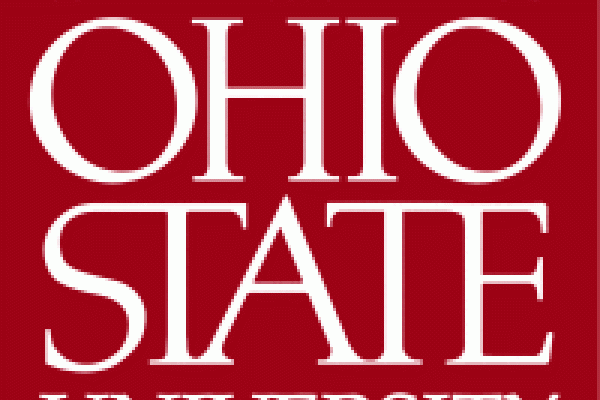
Thursday, February 20, 1-3 p.m.
Join us for our first general meeting of the WG and Working Paper Series discussion by Alcira Dueñas (Associate Professor, History) “Colonial indigenous officials of the República de Indios”
Wednesday, March 5, 12:00 – 1:30 p.m.
Brownbag Lunch Series Presentation: Gordon Ulmer (Ph.D. student, Anthropology) “Betwixt & Between Extraction and Ecotourism in the Peruvian Amazon”
Gordon Lewis Ulmer is a Ph.D. candidate of anthropology at The Ohio State University. He has been traveling to Madre de Dios, Amazonia, Peru since 2008, documenting the role conservation-based labor has played in the lives of local and migrant Peruvians in the region. He was recently awarded a year-long Fulbright-Hays Doctoral Dissertation Research Abroad (DDRA) Fellowship. With this support, Gordon will conduct ethnographic research in Andes and Amazonia Peru from April 2014 through April 2015.
Gordon's research focuses on the interconnections and interdependencies of conservation-based labor (e.g., ecotourism, NGO work, etc.) and extractive labor (e.g., gold mining, logging, hydro-carbon exploration, etc.). For this brownbag lunch talk he will present findings from his ethnographic research over the years and discuss the year-long dissertation project he plans to commence this April. In his talk, he will examine the material, social, and cultural outcomes for families that have depended on livelihoods in both natural resource extraction and biodiversity conservation.
You can follow Gordon’s work on his website http://theobrero.wordpress.com/
Lunch will be provided for all participants. To confirm your attendance please RSVP to wibbelsman.1@osu.edu.
And please reserve the date for our upcoming events this Spring!
Wednesday, March 26, 12:00-1:30 p.m.
Brownbag Lunch Series Presentation: Anna Babel (Assistant Professor, Spanish and Portuguese) “Aspirates and Ejectives: ‘Foreign’ Sounds in Cruceño Valley Spanish, Bolivia”
In this talk, Dr. Babel will discuss the social and grammatical status of aspirates and ejectives for Spanish-speakers, using new data collected in December 2013. She frames this discussion within the context of local ideologies constructing belonging and difference in this area of intense contact between Quechua and Spanish language and culture.
Anna Babel is a sociolinguist and a linguistic anthropologist, with specific interests in contact linguistics and Andean Spanish. Her research draws on quantitative and qualitative data from a Quechua-Spanish contact region in central Bolivia. Dr. Babel investigates how linguistic features are linked to social representations, and the way that complex social factors are integrated into language structure. Dr. Babel holds a Ph.D. in Linguistics and Anthropology from the University of Michigan. A former Peace Corps volunteer, she has conducted field research on Quechua-Spanish language and cultural contact in a community in central Bolivia for more than a decade.
April 2, 12:00-2:00 p.m.
Brownbag Lunch Series Presentation: Nicholas Emlen (Ph.D. student, University of Michigan) “Trilingualism and Coffee Production on the Andean-Amazonian Agricultural Frontier of Southern Peru”
The Andes and Amazonia are often considered separate and historically distinct geographical regions. However, new linguistic, ethnographic, historical, and archaeological evidence suggests that the highland-lowland boundary is in fact very porous. Today, the burgeoning coffee industry in Southern Peru has brought tens of thousands of Quechua-speaking Andean agricultural colonists into the lowland region traditionally inhabited by the Matsigenka people. In this talk, Nicholas will discuss the social nature of Matsigenka-Quechua-Spanish trilingual communication in a small frontier community formed by the intermarriage of Andean migrant coffee farmers and Matsigenkas from across the agricultural frontier. This case study is part of a broader effort to examine the linguistic, social, and historical nature of the Andean-Amazonian relationship.
Nicholas Emlen is a Ph.D. candidate in linguistic anthropology at the University of Michigan, scheduled to finish in March 2014. During his 19 months of fieldwork on the Andean-Amazonian borderland of Southern Peru from 2009-2012, he lived in a small coffee-producing frontier community and collected linguistic and ethnographic data on multilingual interactions in Matsigenka, Quechua, and Spanish. He is currently planning upcoming projects on the complex Matsigenka noun classification system and the effects of the nascent Southern Peruvian cocaine industry on Matsigenka people. Before graduate school, Nicholas worked as the director of the Endangered Language Fund, a small organization that supports collaborations between scholars and speakers of endangered languages.
Thursday, April 17, 1:00-3:00 p.m.
Barbara Piperata (Associate Professor, Anthropology) “The Role of Bolsa Familia in Altering Household Economic Strategies in Rural Amazonia” (in collaboration with Kendra McSweeney, Associate Professor, Geography)
